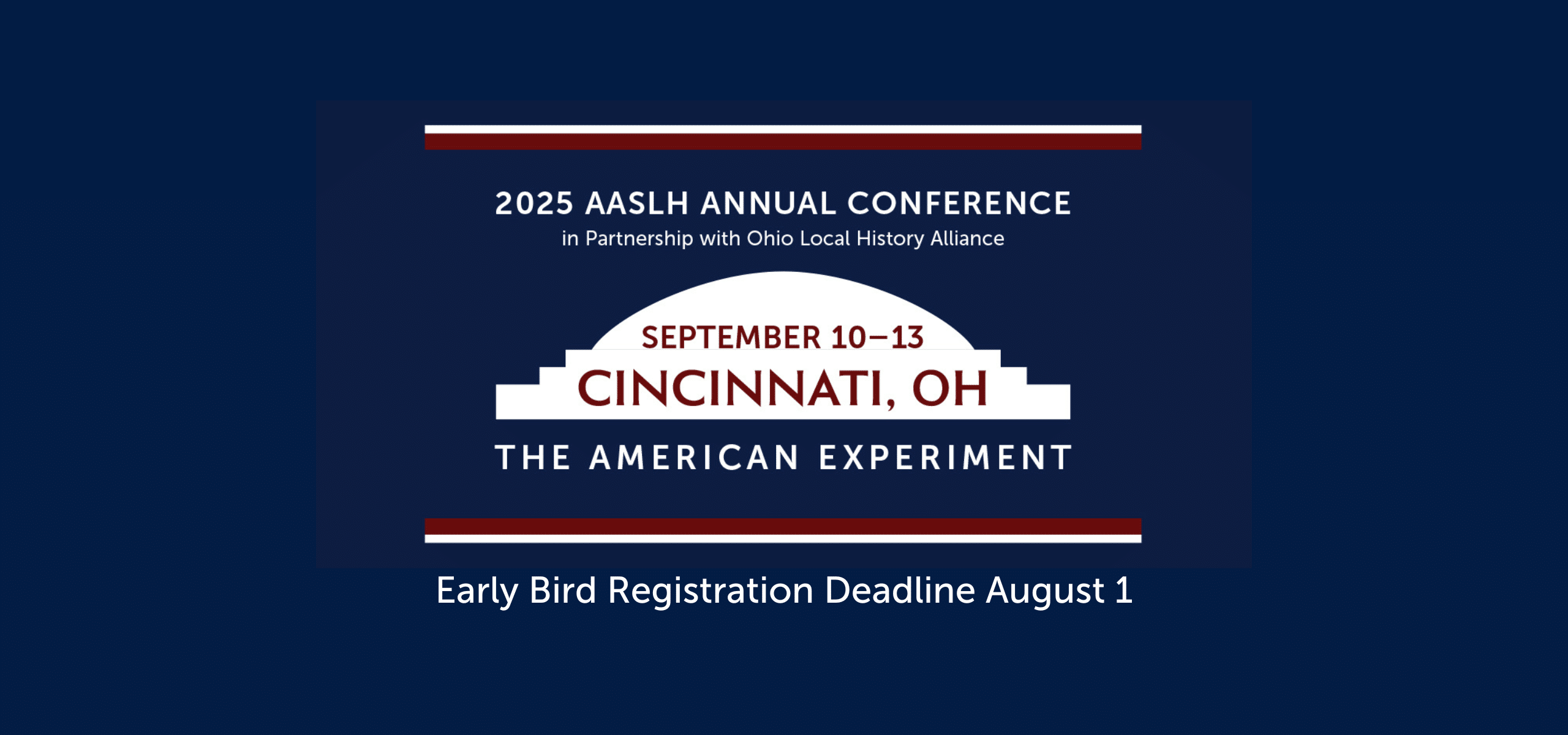Catered events have become an increasingly important part of the business operations of many museums in recent years. In 2013, The Henry Ford began staffing all evening events in Henry Ford Museum with interpreters in addition to the catering and security staff that had traditionally had responsibility for the guest experience during banquets. For a typical event, dinner is generally held in the museum plaza, a large open space at the center, with other locations around the museum frequently used for an hors d’oeuvre reception and dessert. Guests are free to visit the entire museum as part of their evening. Since beginning with the interpretive team that staffs these events a year and a half ago, I’ve worked company parties, a birthday party, a graduation, corporate orientations, awards dinners, exhibit openings, and a multitude of weddings. The following are four benefits I’ve observed to staffing evening events with interpreters:
1. Playing a role in guests’ social lives. Some people love history so much that they want to include it in the most important event of their lives. Who can argue with that? Getting people into our museums as part of their social lives is part and parcel of relevancy. These event clients could have chosen a hotel, a banquet hall, or a golf course for their wedding, but instead they chose our museum, likely because of positive experiences as a visitor. They want their guests to experience something they love. If we’ve been effective in our roles thus far, interpreters have helped build that affinity the event clients feel for the place in general. At a former museum, I had the privilege of making arrangements for docent-led tours during a wedding rehearsal dinner. The bride selected her five favorite works of art and the groom his for their guests to enjoy. Even though the primary reason behind guests visiting during an event may not be to experience the collections, but to partake in a celebration, we still have the opportunity to engage them.

2. Protecting historical resources. It probably will not come as a surprise that social events sometimes require course correction of guests away from an action that would be damaging to an artifact. Interpreters are trained to do this while at the same time interacting with and educating guests. For example, we always station an interpreter at the Rosa Parks Bus because we want evening guests to be able to board the bus and benefit from the immersive experience of sitting where Rosa Parks sat. By facilitating this experience, evening guests are able to come away with an equivalent experience to daily guests that would not be possible without a knowledgeable staff presence at the site.
3. Interacting with guests who are not inclined to merely socialize. Many of us have been there- you’re a guest at a wedding and the only other people you know are the bride and groom, or in the case of a corporate gathering, networking all day has tested the limits of your introversion. When we have a “good presenting night,” in the museum it usually means that guests were given time to walk around and visit the place- similar to daily visitors. But regardless of the number of visitors walking around, we are often astounded at the depth we are able to present to guests who choose to spend 15 or 20 minutes with one of us discussing our exhibits and their personal connections to our stories. For many guests, the evening event is their first visit (or first in many years) to The Henry Ford, and they want to make sure they take in a bit of what the museum has to offer in addition to celebrating or networking.
4. The opportunity to hire non-traditional interpreters. There are many knowledgeable and interesting people out there with a passion for history who, for various reasons, may not have chosen museums as a primary career path. When my museum investigated evening staffing, it became clear that hiring a small interpretive team to exclusively work these events was the best option. The “evening team” is comprised of seven presenters- six of whom have day jobs outside the museum field (the seventh is a full time student in an education program). These presenters consistently perform to high standards despite this being a side-job of theirs. In a few cases, we’ve been able to retain particularly skilled interpreters who would have otherwise left for positions outside our organization by offering them a place on the evening team.
If your museum hosts catered events, I encourage you to consider staffing these events with paid or volunteer interpreters. It may take a while to develop the right levels and timing. For example, we recently began to bring our interpreters in after dinner during weddings rather than before, since speeches, special dances, and the meal itself do not allow much time for walking around. Expect to see a variety of interest levels in your collections, but also anticipate some really rewarding guest interactions.
Kate Morland is Supervisor of Museum Programs at The Henry Ford.



